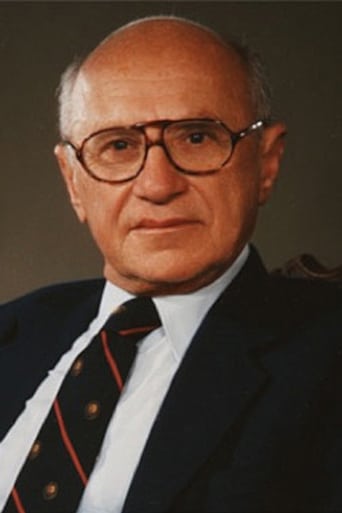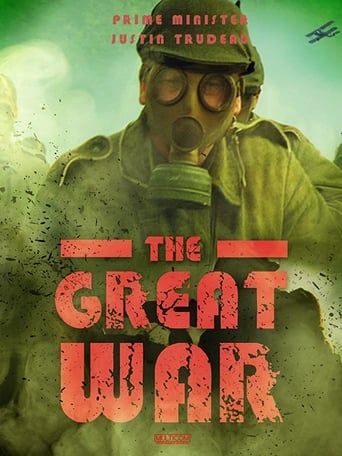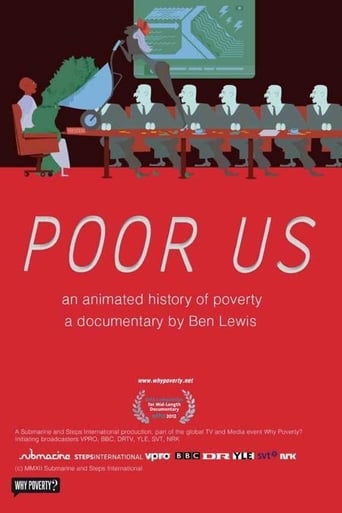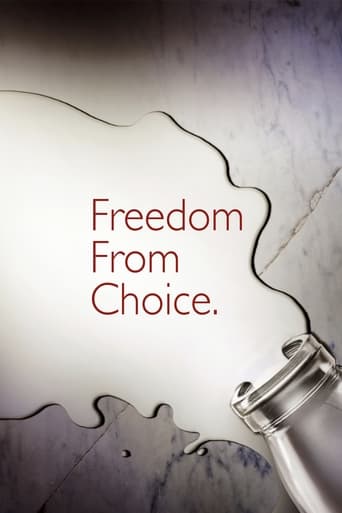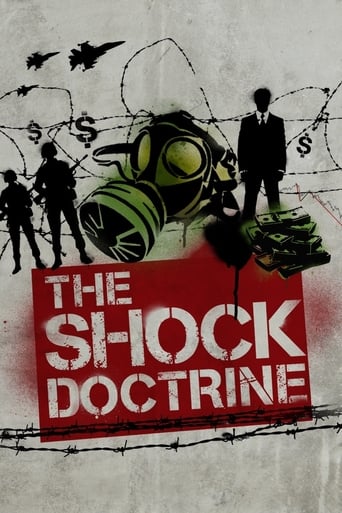
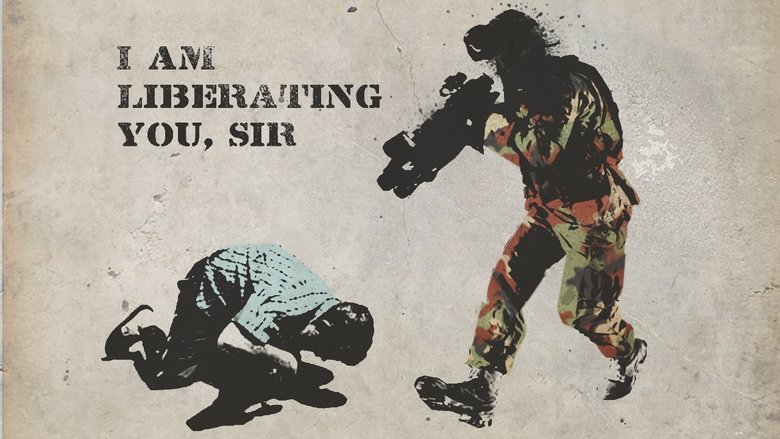
The Shock Doctrine (2009)
An investigation of "disaster capitalism", based on Naomi Klein's proposition that neo-liberal capitalism feeds on natural disasters, war and terror to establish its dominance.
Watch Trailer
Cast


Similar titles
Reviews
It is as old as humankind is, but we only react when our stomachs are empty (and that is not a privilege of Marxist regimes). All over the world the ordinary people look the other way when told that actions have always been taken to control our planet (and of course its economy). I was not surprised with what I saw and heard in this fine documentary, but my info about the who, what, where and when of the whole Neoliberalism business was too vague. Therefore, when I see a film like this I appreciate to be illustrated, but I am mainly surprised at the wickedness of some human beings. My only regret is that "The Shock Doctrine" is a product from a specific time; it was made in the first decade of this century, so it ends with the Obama government. Nevertheless, the information it gives us is still valid to analyze the present. If you prefer to label this as leftist, propaganda or biased thought, well, it is your right to do so and believe in what you want. From my perspective, I do believe that such option leads us all to remain blindfold. I do not pretend things are exactly as described here, but the film does help to make us aware, a bit wiser and conscious that our rights are violated on a daily basis. We best stop believing it happens in "other countries". All of us, up and down, left and right, white and black, are subject to the decisions of evil, greedy persons, persons as those that were expelled from the temple in the Bible, as those that complain about the holocaust they were victim of, without thinking about all the wrong they do to people around the globe with their avaricious economic plans.
This is a movie you should check out. Aristotle said that "It is the mark of an educated mind to be able to entertain a thought without accepting it." Well, going back to the start of the review, even if you think that what Naomi Klein is talking about is pure nonsense, "The Shock Doctrine" is a movie to watch, precisely even more if you don't agree with the ideas it presents.Basically the movie talks about how capitalism aliments itself on conflict and shocks, meaning that it is very good at distracting the attention from the important to some event that is terrible, but not the most terrible. For example, it talks about how the United Kingdom got into the Falklands War, and how that distracted public attention from the strikes and the civil unrest that was ongoing in the country. Does it all sound a little bit conspiratorial? It does, but it is also true that when something like a war happens, people's attention will be centered on that event, and it will become a situation of "us" vs. "others". Even if you don't believe that happens on purpose, it is true that systems, being it capitalism or other, may take advantage of those situations.But that's for a politics or international relations class. Going back to the documentary, "The Shock Doctrine" presents its ideas in a very clear and easy to understand way, and it gives enough examples to see why they say what they say. In that respects it does a very nice job. It also does a good job in making the viewer think and analyze situations. And it is very interesting to try to see things in a different light from the "official" view of things.As Aristotle said, you don't have to accept it. Or agree with it. But it doesn't hurt to think.
The question on my mind after seeing The Shock Doctrine was whether ends justify means. Quite possibly, this is the question Klein wanted to be asked, because much of her case regards the distasteful means taken in order to further free market economics, tactics which the very proponents of these dogmas may feel they want to disassociate themselves with. However, my question was about Klein's/Winterbottom's own tactics.The film uses all methods that we've grown used to from modern politics: cherry-picked facts, "proofs" by emotionally-charged metaphors, hinted claims of guilt by association, sound-bite slogans that are repeated incessantly, and, of course, scare tactics. Sad to say, I've come to expect these things from political candidates that need to make their points in a 30-second TV appearance. I've even come to expect them in rating-seeking news programs. But have we stooped so low that these tactics are now par-for-the-course in documentaries, where a film-maker has 90 minutes of canvas to make a clear, compelling, and well-argued case? I happen to agree with Klein's stance that extreme capitalism is dangerous, and I think what we are seeing in both Europe and China in recent years (e.g. the collapse of Chinese nation-wide education and health policies) are just further proofs of the narrative Klein forwards. However, I don't see that there is a well-argued case here that would convince someone claiming that any change, good or bad, rarely happens in a peaceful way, or that the ultimate outcome of privatization is better than the alternative. In fact, only a handful of minutes of this film are devoted to the question of what the final outcome of extreme capitalism looks like, historically, and these minutes are full of unsubstantiated claims thrown into the air in what is exactly the tactic Klein warns against: shock a person for just over an hour, and suddenly that person becomes much more open to suggestion, at which point you can sprinkle some of your favorite dogmas on him.So, perhaps this film does a good job with all those who are willing to be convinced by visceral arguments, the likes of which have, unfortunately, come to dominate the public discourse, but I rather promote those who educate people to think. Scaring people to make the choices you think are right... well, that's what this film is all about. Isn't it?
"You were such a super lady!" - Mike Yanagita (Fargo)Michael Winterbottom, one of Britain's more daring film-makers, takes a break from feature films to direct "The Shock Doctrine", an interesting documentary based on a book by Canadian journalist Naomi Clein.The documentary essentially says three things. Firstly, that big corporations in search of new markets benefit when governments import a neoliberal economic system, often as a result of pressure from the US, and that this often has catastrophic consequences for ordinary people.Secondly, that political leaders have turned to "brutality and repression" to crush protests against their ideologically inspired programmes of privatisation, deregulation and tax cuts.And thirdly, that certain "shocking events" (The Falkland War, The Gulf Wars, coups in Chile, Argentina and Russia, Hurricane Katrina, 9/11 etc) have been used, or even created, for the purpose of stealthily introducing unpopular reforms in the wake of these crises.So essentially something big and bad is designed to happen in order to distract the populace from some sneaky law being implemented, or some massive privatization deal being granted. IE- capitalists have taken advantage of natural and man-made disasters in order to promote their free market ideals, or outright concocted such shocks.Unfortunately, whatever merits the documentary has are eroded by its overly ominous, overly conspiratorial tone. Winterbottom sees macro plots and macro conspiracies, instead of chaos and confusion. He sees complex plans and careful scheming instead of a more general exploitation of opportunity. Yes, the film offers great analysis of corporatism and various authoritarian governments, and highlights how crises are used by governments to coerce people, but this shouldn't be surprising to anyone who realises that governments routinely use coercion even in the absence of shocks. And of course a focus on macro conspiracies misses the mundane conspiracy of simple, white-bread capitalism and debt based banking.Elsewhere Winterbottom makes a big deal out of Milton Friedman's assertion that reforms are best made during crises. This is odd, since almost every reformer/revolutionary, from Paine to Marx, has said the same thing. Winterbottom also implies that the "crisis equals opportunity" idea is unique to Friedman and that Friendman has "evil intentions", but neither of these claims are particularly believable.Perhaps the most interesting thing about the documentary is Winterbottom's choice of music. He uses the famous theme tune from the Coen Brothers' film, "Fargo". Thematically it's an apt song choice. "Fargo" pretended to be a "true story" but was really a work of fiction, its lead character (a police detective played by Frances McDormand) learning to suspect everyone and not take people and things at face value. Winterbottom's film may not be entirely convincing, but at least it instills a healthy air of distrust and urges us to question our surroundings.7.5/10 - This documentary isn't in the same league as Winterbottom's "Road to Guantanamo" and "Welcome to Sarajevo", two of the better political films out there, but it's still fairly interesting and packed with little moments of insight. Props must be given to Channel 4 for funding, not only this documentary and several of Winterbottom's films, but also for financing some of the more daring British film-makers over the past decade.Worth one viewing.



